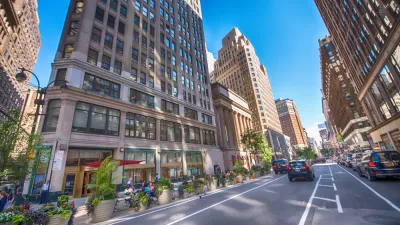Qualcomm and Arup recently published a report on their vision for the future of connected cities. We spoke to Chris Luebkeman, Arup Fellow and Global Director of Foresight, Research and Innovation, and Qualcomm's Kiva Allgood to learn more.
What are the technology dependencies of the future you describe in this report? What are we missing today?
Allgood: In all honesty, the technology is here. The things that stand in the way are business practices, people, and sometimes politics. The technology is present; we just have to find ways to unleash it and collaborate to make this vision come true.
It’s going to take the development of open and interoperable standards. You’ve got to be sharing with other parties even if you may not have a vested interest in selling their product. The standardization of how information gets shared, and the underlying security, will be essential.
Luebkeman: I agree with that entirely. It comes down to some regulatory and philosophical issues rather than technology. How do we share things and what does that mean? We now need an evolution of business models.
FULL STORY: Data, Communications and the Future of Urban Mobility

Planetizen Federal Action Tracker
A weekly monitor of how Trump’s orders and actions are impacting planners and planning in America.

Maui's Vacation Rental Debate Turns Ugly
Verbal attacks, misinformation campaigns and fistfights plague a high-stakes debate to convert thousands of vacation rentals into long-term housing.

Restaurant Patios Were a Pandemic Win — Why Were They so Hard to Keep?
Social distancing requirements and changes in travel patterns prompted cities to pilot new uses for street and sidewalk space. Then it got complicated.

In California Battle of Housing vs. Environment, Housing Just Won
A new state law significantly limits the power of CEQA, an environmental review law that served as a powerful tool for blocking new development.

Boulder Eliminates Parking Minimums Citywide
Officials estimate the cost of building a single underground parking space at up to $100,000.

Orange County, Florida Adopts Largest US “Sprawl Repair” Code
The ‘Orange Code’ seeks to rectify decades of sprawl-inducing, car-oriented development.
Urban Design for Planners 1: Software Tools
This six-course series explores essential urban design concepts using open source software and equips planners with the tools they need to participate fully in the urban design process.
Planning for Universal Design
Learn the tools for implementing Universal Design in planning regulations.
Heyer Gruel & Associates PA
JM Goldson LLC
Custer County Colorado
City of Camden Redevelopment Agency
City of Astoria
Transportation Research & Education Center (TREC) at Portland State University
Jefferson Parish Government
Camden Redevelopment Agency
City of Claremont



























